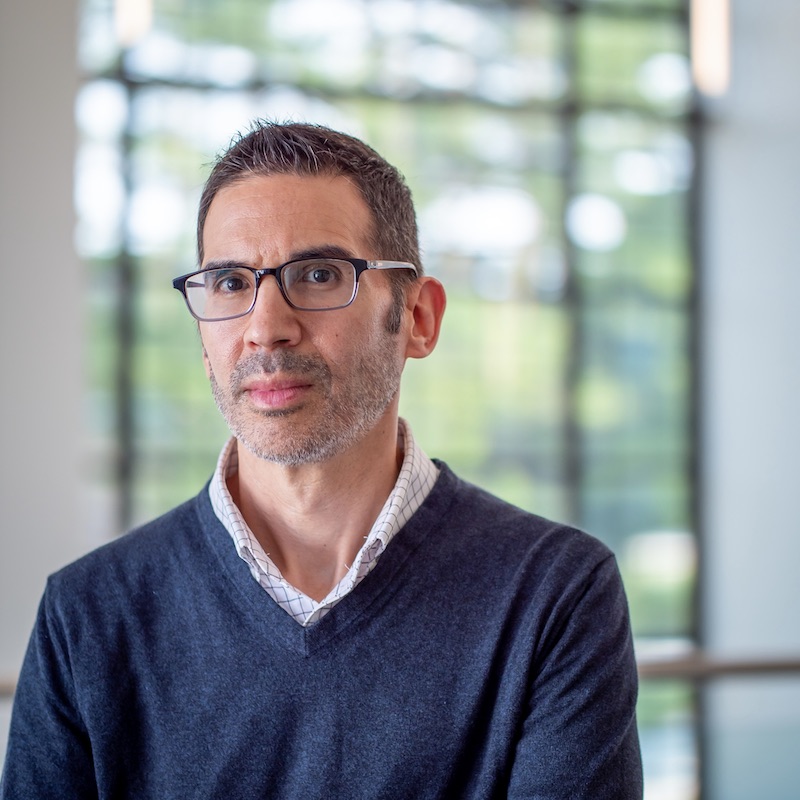SCCAP’s Inaugural Clinical Practice Institute:
Culturally-Responsive Evidence-Based Practices for Children and Families
Presented by the SCCAP Practice Committee
Culturally-Responsive Evidence-Based Practices for Children and Families
SCCAP’s Inaugural Clinical Practice Institute
The Clinical Practice Institute (CPI) is an initiative of SCCAP to enhance opportunities for its membership to engage in hands-on, practical learning about innovations in evidence-based practice for children and families.
On three consecutive Fridays in July, Drs. Milton Fuentes, Isha Metzger, and Armando Pina will each provide a 3-hour interactive workshop on evidence-based treatment engagement, cultural formulation, and interviewing and intervention with diverse youth and families, respectively. Attendees will receive both lecture-based instruction, hands-on practice opportunities, and relevant materials to support their learning.
SCCAP President, Anna Lau, Ph.D., will introduce the 2022 CPI theme in a pre-recorded keynote on “Challenges and opportunities in implementing evidence-based interventions to promote mental health equity for Asian American youth”. Registrants will be sent a link to the recorded keynote address.
Registration includes the opportunity to participate in all three sessions. Each attended individual session date comes with 3 Continuing Education Units.
July 8, 12:00 – 3:00 PM
Applying APA’s Multicultural Guidelines to Latinx Children and Families: Implications for Clinical Practice

Dr. Milton Fuentes
Montclair State University
In 2017, APA released the second iteration of the multicultural guidelines, titled Multicultural Guidelines: An Ecological Approach to Context, Identity, and Intersectionality. The revised guidelines build on current literature and present an ecological model emphasizing individual’s self-definition within various contexts. These include the bidirectional relationship that occurs between the individual and the professional; school, home, and community; institutions and their impact on engagement; domestic and international climates; and related outcomes. The revised multicultural guidelines also address the intersectionality of reference group identities, including race, age, gender, immigration status, language, ability status, culture, religion, socioeconomic status, ethnic identity, sexual orientation, gender identity, spirituality, education, and employment. In this workshop, an expert in Latinx psychology will introduce and address the guidelines relevance to Latinx children and their families. Through case studies, participants will consider applications for practice. The workshop will include both didactic and conversational aspects, allowing for consideration of how the guidelines can be best utilized within professional practice with Latinx children, families, and communities.
Learning Objectives:
- Explain the heterogeneity within the Latinx community.
- Describe the Layered Ecological Model of the Multicultural Guidelines.
- Discuss the implications of the ecological model for professional practice with Latinx children and families.
- Apply the tenets of the Multicultural Guidelines to a case vignette.
July 15, 12:00 – 3:00 PM
Healing Interpersonal and Racial Trauma: Cultural Considerations for Integrating Racial Socialization into Evidence-Based Practices for Black Youth and Families

Isha Metzger, PhD
Cultural Concepts, LLC
Georgia State University
The negative consequences of interpersonal trauma (e.g., physical abuse) take a disproportionate toll on Black youth due to the compounding stress of negative racial experiences that can be both direct (e.g., microaggressions) and vicarious (e.g., witnessing police brutality in the media). Schools are a part of a system of community-based services in place to help children and families prevent and treat negative consequences that might emerge from experiences of abuse, neglect, and discrimination. However, our current services do not systematically consider interpersonal and racial stress and trauma in their understanding of youth which impacts their treatment, discipline, and academic outcomes, to name a few. Researchers and clinicians have identified efficacious evidence-based trauma informed treatment strategies that improve cognitive and behavioral outcomes for youth who experience trauma. To increase their utility in responding to and treating interpersonal trauma, practitioners should integrate and address cultural factors (e.g., system mistrust) that are likely to influence Black families’ abilities to navigate the system and utilize existing strategies and supports. In addition, Black youth rely on particular assets and strengths in their families and communities to reduce negative mental and behavioral health outcomes that can result from interpersonal and race-related stressors. Racial socialization is the protective process of transmitting cultural behaviors, attitudes, and values to prepare youth to cope with racial stressors, and is associated with positive outcomes including increased resilience, coping abilities, and decreased problem behaviors and anxiety in Black youth.
Learning Objectives:
- Identify ways that interpersonal and racial stress and trauma impact Black youth development.
- Describe research on barriers and facilitators to service utilization for Black youth and families.
- Discuss the protective role of racial socialization on behavioral and mental health outcomes for Black youth.
- Contribute to multidisciplinary teams to make culturally informed decisions pertaining to engagement, assessment, and treatment of Black youth.
July 22, 12:00 – 3:00 PM
Use of cultural formulations in clinical practice with Latine families

Armando Pina, PhD
Arizona State University
The American Psychiatric Association, in its DSM-5 (2013), made the importance of integrating cultural formulations in clinical practice official. In this webinar, a Latinx psychology scholar will introduce and explicate each aspect of the cultural formulation pertaining to minoritized Latinx caretakers and their children (families). The presenter will discuss ways cultural formulation components; such as cultural identities, explanatory models, and psychosocial stressors, among others; explain clinical complexities that arise in therapy with Latinx families. Practice challenges, such as navigating cultural meaning, code switching, enculturation resistance, and language as currency will be included. Also included, by focusing on minoritized youth and families, are challenges such as those that implicate belongingness, hybridity, creolization, migration history (refugee, transborder, undocumented), and divergent frames of cultural reference (e.g., from multiple caretakers). The webinar includes formal didactics in addition to discussion and collaborative learning activities. Through case studies, the presenter will demonstrate the application of cultural formulation inquiry. And, there will be in-depth discussion about pragmatic leveraging of cultural formulation dynamics to activate therapeutic elements.
Learning Objectives:
- Identify the dynamic relations among cultural formulation components shaping the clinical presentation of the Latine youth and family.
- Recognize situations that minoritize Latine youth and families, based on cultural formulation inquiry.
- Explicate barriers to equitable service delivery, arising from overlooking cultural formulations.
- Evaluate the application of cultural formulations to enable activation of equitable care.
Space Is Limited!
Registration includes all three speakers. Fees are $120 for SCCAP members, $220 for non-SCCAP members, and $30 for students. This cost includes up to 9 CE credits.
More From Summer 2022
More From Summer 2022
SCCAP’s Inaugural Clinical Practice Institute
Culturally-Responsive Evidence-Based Practices for Children and Families
In Focus: Understanding, Preventing, & Responding to School Violence
By Julianna N. Casella, BS; Margaret E. Manges, MEd; & Amanda B. Nickerson, PhD
The Advocacy Imperative: Politics are Personal & Professional
By Megan Mooney, PhD
SCCAP at the APA 2022 Convention
By Miya Barnett, PhD & Joy Gabrielli, PhD
President’s Message: Taking Up the Challenge
By Anna Lau, PhD
2022 Distinguished Career Award
Recipient Profile: Enrique Neblett, Jr., PhD
2022 Distinguished Career Award
Recipient Profile: Michael Roberts, PhD, ABPP
2022 R. Bob Smith, III Excellence in Psychological Assessment Award
Recipient Profile: Eric Youngstrom, PhD
2022 SCCAP Practice Award
Recipient Profile: Alysha D. Thompson, PhD
2022 Abidin Early Career Award & Grant
Recipient Profile: Joseph McGuire, PhD
2022 Future Directions Forum Update
By Andres De Los Reyes, PhD
Journal Update: EPCAMH
By Mary Fristad, PhD
Journal Update: JCCAP
By Andres De Los Reyes, PhD
2022 Routh Award Winners
Congratulations to Our Winners!
2022 Student Achievement Award Recipients
Congratulations to Our Winners!
2022 Diversity Professional Development Awards
Congratulations to Our Winners!
2022 Student Development Committee Professional Development Awards
Congratulations to Our Winners!
2022 APA Student Poster Awards
Congratulations to Our Winners!
Emerging Adulthood SIG: An Open Invitation
By Thomas McMahon, PhD & Amanda Zayde, PsyD
Bilingual Psychologists SIG Update
By Hannah Jones, PhD
Clinical Child & Adolescent Practice SIG Update
By Jill Thurber, PhD
Infant and Early Childhood SIG Update
By Miller Shivers, PhD & Caroline Kerns, PhD
Acute, Intensive, & Residential Services SIG Update
By Jarrod Leffler, PhD, ABPP & Aaron Vaughn, PhD
Time to Consider Becoming a Fellow of SCCAP!
By Sharon Berry, PhD, ABPP
Update from SCCAP Representatives to APA Council
By Mary Louise Cashel, PhD & Timothy Cavell, PhD
Diversity Committee Update
By Omar G. Gudiño, PhD, ABPP
Membership Committee Update
By Chrissy Cammaratta, PhD, ABPP
American Board of Clinical Child & Adolescent Psychology Update
By Omar G. Gudiño, PhD, ABPP
Education and Standards Committee Update
By Tara Peris, PhD
2022 APA President-Elect Election Announcement
Presentation of APA Candidates
SCCAP Child Mental Health in Action Program
Call for Funding Applications
More From Summer 2022
More From Summer 2022
SCCAP’s Inaugural Clinical Practice Institute
Culturally-Responsive Evidence-Based Practices for Children and Families
In Focus: Understanding, Preventing, & Responding to School Violence
By Julianna N. Casella, BS; Margaret E. Manges, MEd; & Amanda B. Nickerson, PhD
The Advocacy Imperative: Politics are Personal & Professional
By Megan Mooney, PhD
SCCAP at the APA 2022 Convention
By Miya Barnett, PhD & Joy Gabrielli, PhD
President’s Message: Taking Up the Challenge
By Anna Lau, PhD
2022 Distinguished Career Award
Recipient Profile: Enrique Neblett, Jr., PhD
2022 Distinguished Career Award
Recipient Profile: Michael Roberts, PhD, ABPP
2022 R. Bob Smith, III Excellence in Psychological Assessment Award
Recipient Profile: Eric Youngstrom, PhD
2022 SCCAP Practice Award
Recipient Profile: Alysha D. Thompson, PhD
2022 Abidin Early Career Award & Grant
Recipient Profile: Joseph McGuire, PhD
2022 Future Directions Forum Update
By Andres De Los Reyes, PhD
Journal Update: EPCAMH
By Mary Fristad, PhD
Journal Update: JCCAP
By Andres De Los Reyes, PhD
2022 Routh Award Winners
Congratulations to Our Winners!
2022 Student Achievement Award Recipients
Congratulations to Our Winners!
2022 Diversity Professional Development Awards
Congratulations to Our Winners!
2022 Student Development Committee Professional Development Awards
Congratulations to Our Winners!
2022 APA Student Poster Awards
Congratulations to Our Winners!
Emerging Adulthood SIG: An Open Invitation
By Thomas McMahon, PhD & Amanda Zayde, PsyD
Bilingual Psychologists SIG Update
By Hannah Jones, PhD
Clinical Child & Adolescent Practice SIG Update
By Jill Thurber, PhD
Infant and Early Childhood SIG Update
By Miller Shivers, PhD & Caroline Kerns, PhD
Acute, Intensive, & Residential Services SIG Update
By Jarrod Leffler, PhD, ABPP & Aaron Vaughn, PhD
Time to Consider Becoming a Fellow of SCCAP!
By Sharon Berry, PhD, ABPP
Update from SCCAP Representatives to APA Council
By Mary Louise Cashel, PhD & Timothy Cavell, PhD
Diversity Committee Update
By Omar G. Gudiño, PhD, ABPP
Membership Committee Update
By Chrissy Cammaratta, PhD, ABPP
American Board of Clinical Child & Adolescent Psychology Update
By Omar G. Gudiño, PhD, ABPP
Education and Standards Committee Update
By Tara Peris, PhD
2022 APA President-Elect Election Announcement
Presentation of APA Candidates
SCCAP Child Mental Health in Action Program
Call for Funding Applications
